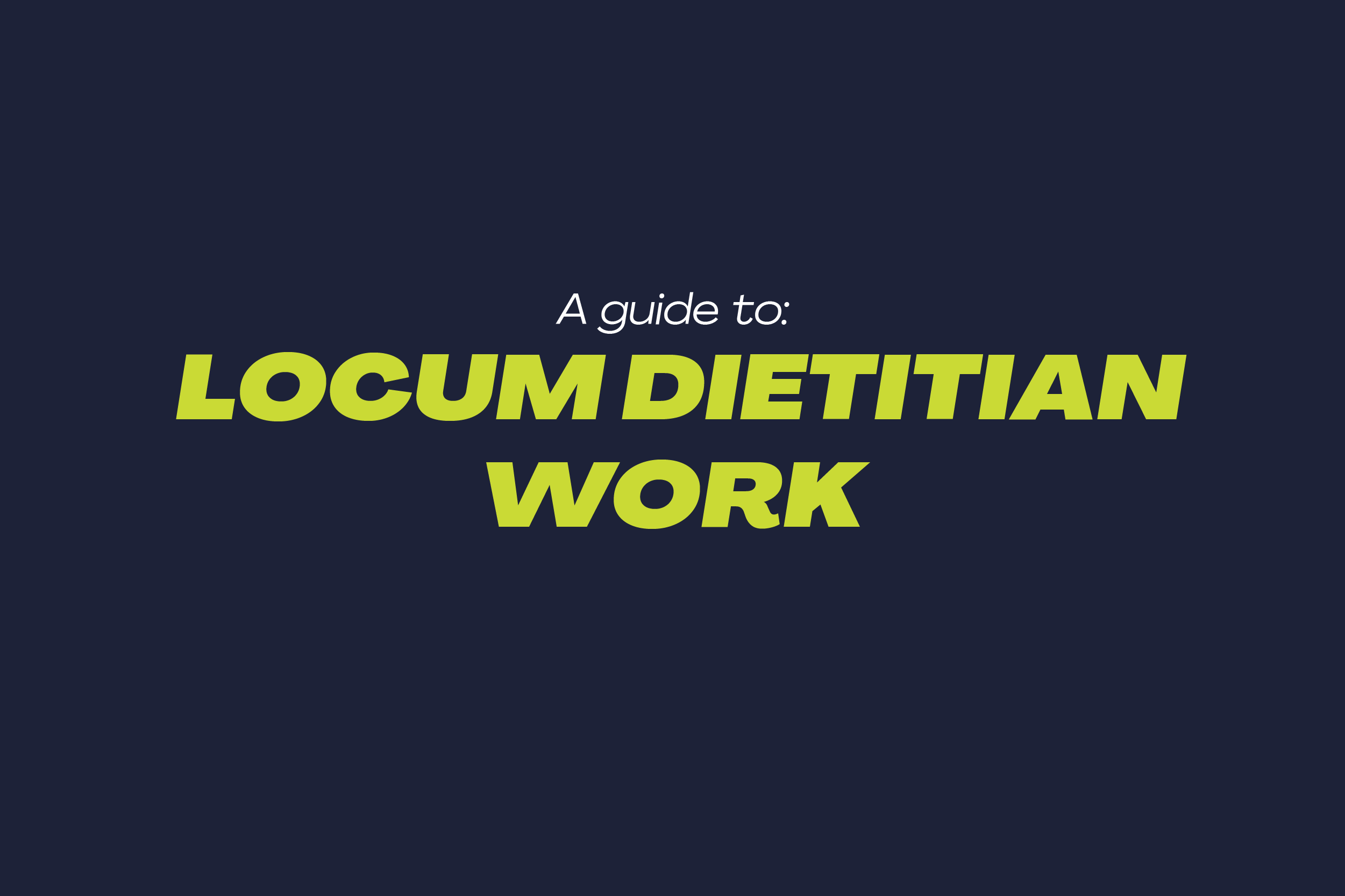Article Breakdown
What Is a Dietitian?
Get Qualified
Register with the HCPC
Join the British Dietetic Association (BDA)
Where Can Dietitians Work?
Key Skills for Dietitians
Career Progression
How Your World Can Help
What Is a Dietitian?
A dietitian is a healthcare professional who uses evidence-based nutrition to assess, diagnose, and treat dietary problems. They help patients manage many conditions. These include diabetes, eating disorders, food allergies, kidney disease, and digestive issues.
Dietitians are the only nutrition professionals regulated by the Health and Care Professions Council. This ensures they always work to the highest standards.
“The dietetics field is evolving fast, and so are the opportunities. We see a strong need for dedicated professionals. They want to make a difference in clinical work and community outreach. We make it our mission to match those people with roles where they’ll thrive.”
- Callum Endean-Coyle, Dietetics Consultant at Your World Healthcare
Get Qualified
The most common route to becoming a dietitian is to complete a BSc (Hons) in Dietetics. These degrees typically take 3 to 4 years and combine academic study with clinical placements.
You’ll study subjects like:
- Human nutrition and metabolism
- Biochemistry and physiology
- Psychology and behavioural science
- Public health nutrition
- Communication and counselling skills
Throughout your degree, you must complete placements to different settings to develop clinical experience. These practical placements can be in NHS hospitals or community settings.
Another route into becoming a dietitian is by applying for a Postgraduate Diploma or Master's in Dietetics. To do so, you must already have a degree in a relevant subject. These subjects include nutrition, biomedical sciences, or health sciences.
These HCPC-approved Dietetics intensive courses usually take 18–24 months.
Register with the HCPC
Once you've successfully completed your degree, you must apply for registration with the Health and Care Professions Council (HCPC). This is a legal requirement to practise as a full time dietitian in the UK.
The registration process includes submitting evidence of your qualifications and fitness to practise.
Join the British Dietetic Association (BDA)
While not mandatory, many dietitians choose to become members of the British Dietetic Association (BDA). The BDA is the professional body for dietitians and offers a wealth of support, including:
- Access to CPD resources to help you stay current with developments in dietetics.
- Legal and workplace support for employment issues.
- Professional networking opportunities through specialist groups.
- Career development tools including job boards and events.
Where Can Dietitians Work?
Dietitians have a broad scope of practice and can work in a variety of sectors.
Firstly, NHS hospitals and trusts are the most common setting. NHS jobs offer roles in general wards, specialist clinics, intensive care units, and outpatient departments.
Community health services help support people in their homes or clinics. This can include focusing on long-term conditions, weight management, or health promotion.
GP surgeries are another practice route. In a GP surgery, dietitians can offer individual consultations and group education sessions.
Private healthcare is another popular sector for those working within dietetics. Workplaces can include private clinics clinics, health insurers, and corporate wellness programmes.
Dietitans can also be instrumental in roles within the food industry and media. Here they would be advising on product development, labelling, and public education campaigns.
Research and academics is another key sector. Within academics, dietitians conduct studies or teach the next generation of dietitians.
Finally, dietitans can work within public health and policy. They can work for local authorities, charities, or governments to shape national nutrition strategies.
Key Skills for Dietitians
Being a dietitian involves more than knowing nutrition science. You’ll need to develop a range of interpersonal and clinical skills, such as:
- Excellent communication skills – to explain complex dietary concepts in a way patients can understand and follow.
- Empathy and compassion – to support people dealing with illness or lifestyle change.
- Analytical thinking – to assess patient needs and apply research to practice.
- Organisational skills – to manage your caseload and maintain accurate records.
- Teamwork – working closely with doctors, nurses, and other allied health professionals.
Callum advises: "Strong training, good support, and the right placements are key to a successful career in dietetics. At Your World, we help dietitians find roles that aren't just jobs, but steps toward long-term growth.”
Career Progression
With experience and further training, dietitians can specialise or move into more senior roles. These can include clinical specialisms such as paediatrics, oncology, renal nutrition, or diabetes care. Other roles are ones such as team leadership and management roles within hospital departments or community health teams.
Dietitians can advance their careers in several ways. They can pursue advanced clinical practice, which may include independent prescribing. They can also focus on education or research at universities or professional organisations. Another lucrative option would also be freelance consulting or private practice.
"While working as a locum with Your World Healthcare, I used what I learned in class. I applied this knowledge in real-world gastro and IBS settings at different trusts. The variety of roles has helped me build confidence, clinical judgment, and hands-on experience with different patient groups.”
- Beverley, Your World Healthcare Dietetics Locum
How Your World Can Help
At Your World Healthcare, we specialise in placing dietitians in rewarding roles across the NHS and private sector. Whether you're newly qualified or looking for a career change, we can help you:
- Find permanent or locum positions
- Access opportunities across the UK
- Get guidance through the application process
- Receive support with compliance and registration
“We work closely with clients and candidates. This helps us make placements that support career growth and improve patient care. Whether you're looking for your first role or your next big move, we’re here to support you every step of the way."
— Callum Endean-Coyle, Dietetics Consultant at Your World Healthcare








